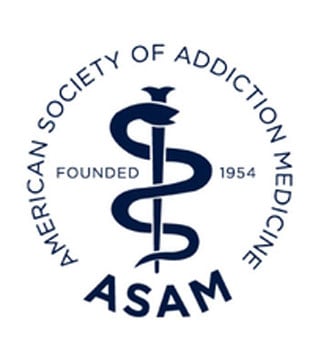Inpatient Residential Treatment in Florida

As one of the leading inpatient treatment centers in Florida, Hanley Center knows that entering full-time care for alcoholism, drug addiction, or mental health can be a big decision. Whether you are struggling with a mental health condition, have experienced relapse following a period of sobriety, or have a complex medical co-occurring disorders, or family history, we can help.
Our residential mental health and drug treatment programs in Florida are designed with comfort and healing in mind. Featuring modern amenities in a peaceful tropical environment, our state-of-the-art center provides a safe and calm atmosphere with excellent patient-to-staff ratios. In each of our programs, we use an integrated approach to treatment that incorporates a range of customizable modalities.
The services at our Palm Beach treatment center in Florida include:
- Advanced psychological testing
- Addiction program evaluation
- Neurological interventions through Hanley’s Center for Brain Recovery
- Sophisticated medical services (including acute care)
- Detoxification
- Group and individual therapy for recovery
- Experiential therapy and wellness activities
- Intensive family programming
- Spiritual and 12-Step support
- Addiction treatment for professionals
- Continuing care planning for lifespan recovery management
We work hard to ensure that treatment is provided in a space where our patients can focus on restoring their physical, mental, and spiritual wellness.
Palm Beach Recovery Amenities include:
- A private, modern recovery campus in South Florida
- Age-specific and gender-specific residences
- Lush outdoor spaces for rest and reflection
- Wellness and fitness facilities
- Massage and acupuncture, as needed
TREATMENT
Programs at Our Residential Treatment Facility in Florida
We offer age and gender-specific addiction programs for adult men, adult women, and older adults. For those without substance use disorders, we offer a boutique stand-alone mental health program.
Men’s Recovery Program
On the path to healing, men face specific issues rooted in societal values about how men should feel, think, and act. These issues—including toxic relationships, sexuality, intimacy, and trauma—can complicate the recovery process if not treated with sophisticated clinical care.
Hanley Center’s residential men’s program features a team of highly-trained addiction professionals who understand the unique needs of men. We offer unparalleled treatment for men facing addiction to alcohol, other drugs or co-occurring mental health disorders such as anxiety, depression, and PTSD. Our supportive environment provides a safe space where men can explore their emotions, thoughts, and behaviors in a peer-based environment.
After a thorough assessment, the primary treatment for men focuses on:
- Alcohol and drug use education
- Developing healthy relationships with women and other men
- Expressing emotions
- Managing anger
- Emotional isolation and trust
- Trauma and PTSD
- Spiritual disconnection
- Sexuality
- Intimacy
Women’s Recovery Program
Women suffer more significant physical consequences from alcoholism and other addictions than men. They become addicted faster and experience trauma and co-occurring disorders (such as depression, anxiety, and disordered eating) at higher rates. Social expectations and traditions often encourage women to care for and nurture others, often at the expense of their own needs and health.
Under the expert care of our compassionate addiction treatment team, women can renew their relationships with themselves and others in our safe and nurturing environment. We offer therapies for trauma and co-occurring disorders and build customized treatment plans for every woman in our program. Psychological and psychiatric therapies and medical care are integrated as necessary.
During primary treatment, at our inpatient drug and alcohol treatment in Florida, specific women’s issues are addressed, including:
- Trauma and PTSD
- Building healthy relationships
- Shame and guilt
- Parenting/Co-Parenting
- Hormonal shifts
- Loss of identity
- Spiritual disconnection
- Sexuality
- Intimacy
- Body image issues and disordered eating
We proudly provide tailored education about alcohol, drugs, and women’s recovery.
Older Adult Recovery Program
At our Florida inpatient treatment center, our team recognizes the unique challenges of mid-life and older adults. That’s why we treat them separately from the younger demographics. In an interactive approach that addresses stage of life and generational value systems, Hanley Center provides age-specific care that considers each person’s life experience.
Detoxification and treatment among mid-life and older adults can sometimes be a slower process, and we carefully attend to each patient’s needs with unmatched clinical and medical care. Our nurses are available 24/7, and our on-staff doctors can treat acute comorbid conditions.
During treatment, specific issues related to this demographic are addressed in therapy, such as:
- Life transitions
- Grief and loss
- Codependency
- Problems at work
- Purpose and Identity: Moving from success to significance
- Shame and guilt
- Accidental addiction — “The Prescription Drug Trap”
- Loneliness and isolation
- Depression
- Pain management
Our Family Program
As one of the most integrated residential treatment centers in Florida, we recognize that the disease of addiction affects the entire family. When one family member suffers, the rest do as well—often in silence.
For us, emphasizing family support and care is critical to long-term success. Loved ones are encouraged to attend Hanley Center’s Five-Day Family Program to learn about addiction and develop the necessary tools for their recovery.
The family program explores topics such as:
- Addiction as a progressive, neurobiological disease
- Family dynamics
- Codependency
- Enabling addiction vs. supporting recovery
- 12-Steps for families
- Introduction to Al-Anon
- Relapse process
- Healthy communication and boundaries
Residential Mental Health Program
Hanley Center’s Mental Health Program takes an integrated approach to treating each person in our care. Our experienced professionals compassionately evaluate each patient, affirm or update diagnoses, and create highly individualized treatment plans for healing. We help you examine every dimension of wellness — biological, psychological, social, and spiritual – to help you fully address your unique issues, challenges, and strengths.
We treat adults experiencing a range of diagnoses, including mood disorders, personality disorders, trauma, and more. Our curriculum is designed to provide individual insights while fostering community support. Our clinical and medical teams help patients learn vital coping skills to navigate life’s everyday challenges.
Hanley Center: Your Choice for Inpatient Treatment Centers in Florida
At Hanley Center, we recognize the uniqueness of each recovery journey. We are dedicated to providing comprehensive treatment that reflects our holistic and personalized approach to addressing alcohol and substance use disorders.
Our goal is to empower individuals to reclaim their lives and achieve lasting recovery through evidence-based therapies, compassionate care, and a supportive environment.
Hanley Center proudly accepts most insurance plans, ensuring individuals can receive the support they need without unnecessary financial burdens.
Your journey to recovery and well-being starts here. Learn more about our programs today and discover the possibilities for your path forward. Call us at 561.841.1033, and let us support you every step of the way.
Hanley Center: Most Insurance Accepted
Address: 933 45th Street
West Palm Beach, FL 33407




